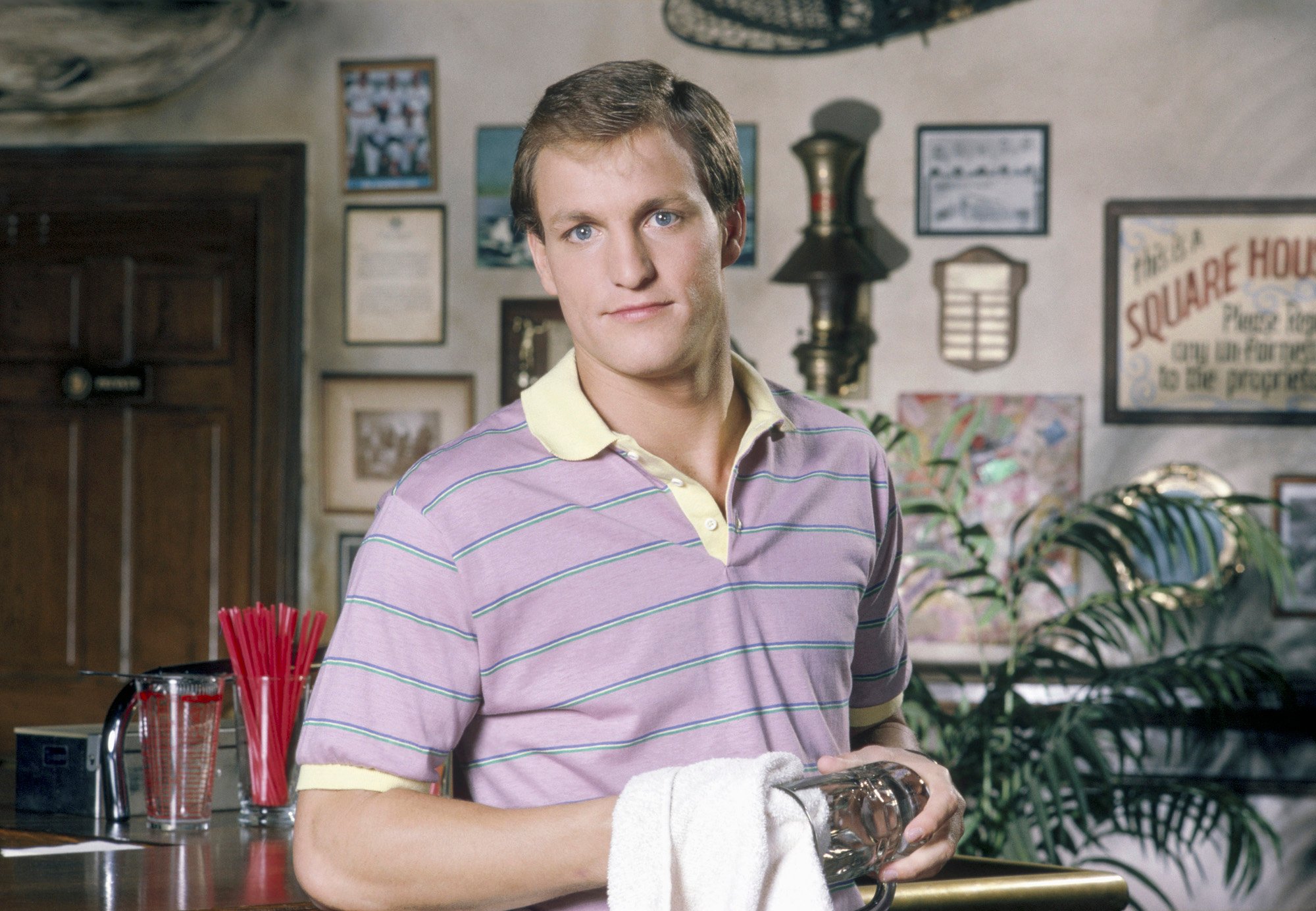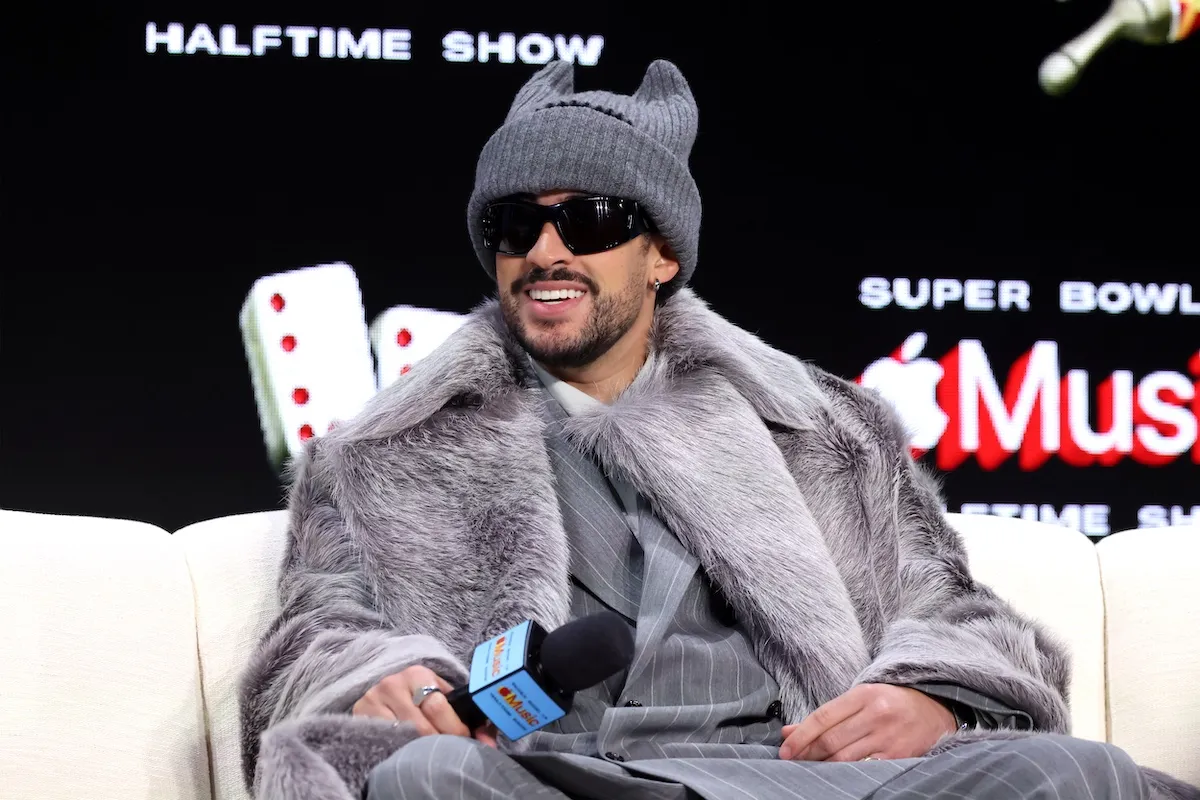‘Cheers’: Woody Boyd Was So Brainless For a Clever Reason
Cheers touched on social issues, addressed responsible drinking, and packed humor into every episode. The classic comedy series debuted in 1982 and featured a star-studded cast.
Sam Malone (Ted Danson), a recovering alcoholic and former baseball pitcher, owns and runs the bar. Malone had a tumultuous relationship with waitress Diane Chambers (Shelley Long). Malone eventually developed a relationship with Rebecca Howe (Kirstie Alley).
Carla Tortelli (Rhea Perlman) played in every episode and had a sharp sense of humor filled with sarcasm. Postal worker Cliff Clavin (John Ratzenberger) acted as the resident bar know-it-all. Norm Peterson (George Wendt) was a frequent patron of the bar and tended to ask for one more beer.
Dr. Frasier Crane (Kelsey Grammar) joined the cast of Cheers in its third season and showed a romantic interest in Diane. Emmy award-winning actor Woodrow “Woody” Harrelson played the loveable and gullible Woody Boyd on Cheers.
The dynamic cast brought life and laughs to the Boston bar scene on Cheers. The characters lived up to the theme song of the show and swapped stories at the bar, “where everybody knows your name.”

Who was Woody Boyd?
Harrelson’s Boyd joined the Cheers cast in season four of the iconic comedy. Harrelson’s prolific acting career includes prominent roles in Midway (2019), Solo: A Star Wars Story (2018), and The Glass Castle (2017). The Academy Award-nominated actor also portrayed Haymitch Abernathy in all four films in the Hunger Games series.
Boyd worked behind the bar counter and made people laugh with his innocence and lack of wit. Boyd grew up on a farm in the Midwest before he joined the crew at the Boston tavern. Boyd quickly became a fan-favorite character on the iconic series.
Some people may wonder why the writers made Boyd so unsophisticated. It turns out that the writers had a particularly good reason behind the naivety of the character.
Woody replaced “Coach” on ‘Cheers’
Emmy nominated actor Nicholas Colasanto portrayed Ernie “Coach” Pantusso in the first three seasons of the classic sitcom. Coach endured numerous head injuries during his time playing catcher in baseball. The lasting effects of repetitive head injuries caused Coach to be a bit dim-witted.
Colasanto suffered cardiac problems during the third season. He missed quite a bit of work during; however, he assured his fellow cast members that he would be present for the season finale. Unfortunately, Colasanto died on February 12, 1985. The cast and crew honored Colasanto and addressed his death at the beginning of the following season.
Harrelson joined the cast of Cheers in season four and sort of replaced Coach’s position on the show. Harrelson played the role of Boyd from 1985 to 1993.
The writers wittingly made Woody Boyd brainless
Writers have a lot of responsibility when they craft characters. Each character needs to serve a purpose and drive the storyline forward. Boyd wasn’t just brainless for entertainment purposes; his lack of quick-with meant that other characters were often required to explain things to him.
By having other characters provide exposition to Boyd, the writers ensured that the audience received the necessary information.
According to Ranker, Cheers writer and producer Ken Levine, explained why the creative team needed a central character to be brainless, “When [Colasanto] died, they wanted the new character to be similar because of the role Coach played. Having such a ‘dumb’ character allows you to get exposition out. When you explained things to Coach, you were really explaining it to the audience.”
The writers meticulously developed each character’s personality traits. There was a great deal of thought process behind Boyd’s witless character. Cheers quickly became one of the most popular sitcoms in the 1980s.


